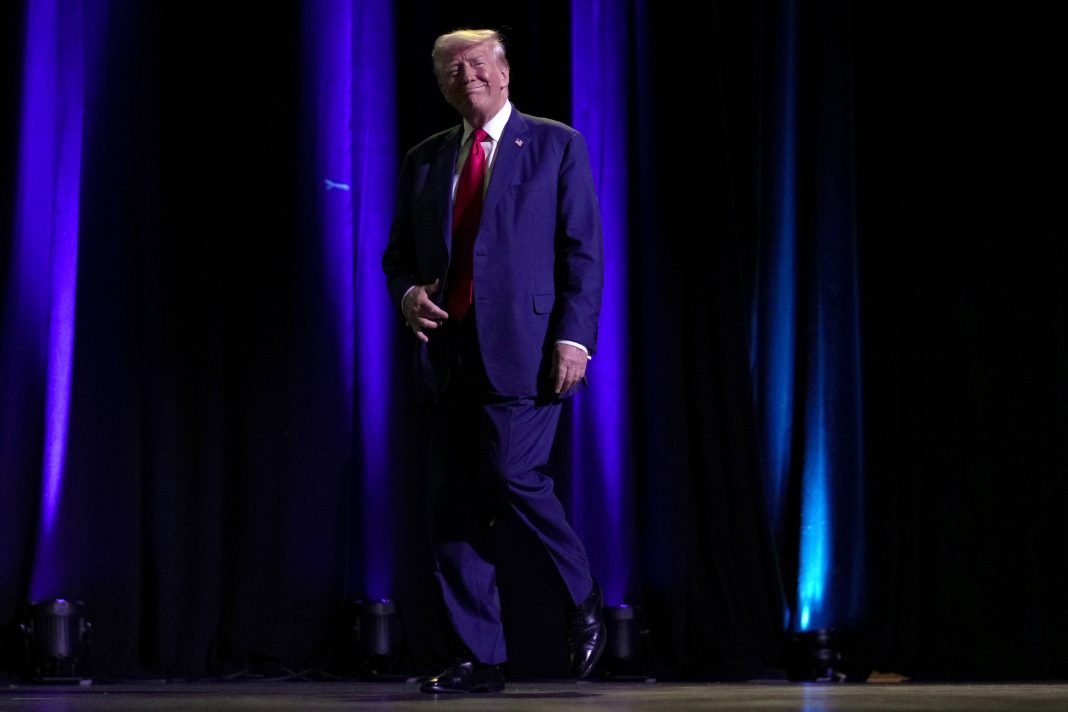Title: The Media’s Failure to Report the Truth About Trump: A Deep Dive into Horse-Race Coverage
Introduction:
In recent years, there has been a growing demand for the media to change its approach to covering Donald Trump’s political campaigns. Critics argue that the press should focus on investigating Trump and highlighting the threat he poses to democracy. However, despite these calls for reform, the media has failed to shift its traditional formula of horse-race coverage. This article delves into the reasons behind this failure and explores the historical, technological, and financial factors that have contributed to the dominance of horse-race coverage in political journalism.
The Historical Influence of Campaign Narratives:
The origins of modern American political coverage can be traced back to the 1960 presidential campaign between John F. Kennedy and Richard Nixon. Theodore White’s groundbreaking book, “The Making of the President 1960,” introduced a narrative framing that focused on the campaign as a yearlong adventure, overshadowing policy analysis and scandal investigations. This narrative approach became the model for generations of political reporters, shaping their coverage to prioritize the story of the campaign rather than the substance.
The Rise of Television and Horse-Race Coverage:
The advent of television in the 1960s further transformed campaign coverage. The nationally televised Kennedy-Nixon debates shifted the focus to candidates’ visual appeal, and reporters began prioritizing the imagery and symbolism of campaigns. Joe McGinniss’ book, “The Selling of the President 1968,” highlighted the role of advertising and marketing in campaigns, leading reporters to delve deeper into the campaign process and horse-race coverage.
The Influence of “What It Takes” and Ethical Lapses:
Richard Ben Cramer’s book, “What It Takes: The Way to the White House,” published in 1992, had a profound impact on campaign coverage. Cramer’s focus on candidates’ willingness to do anything to win shaped reporters’ coverage, downplaying ethical and moral lapses unless they hindered electoral victory. This unintentionally provided a narrative framework for covering Trump, as his unorthodox tactics were seen as part of a winning strategy.
Technological Advances and the 24-Hour News Cycle:
The rise of cable news and the internet intensified the demand for quick hits from the campaign trail. Cable news networks filled endless hours of coverage, often prioritizing minor campaign process stories. The founding of Politico in 2007, with its focus on fast-paced horse-race coverage, set the tone for daily campaign reporting. The need for web traffic and the financial pressures on news organizations further reinforced the dominance of horse-race coverage in today’s attention-deficit news landscape.
The Consequences of Horse-Race Coverage:
Horse-race coverage, with its emphasis on candidate rankings, lacks substance and investigative journalism. This leads to a dearth of in-depth stories on policies and issues. Campaigns have recognized this obsession and have increasingly bypassed the press to communicate directly with the public through social media platforms. Trump’s prolific use of social media during his 2016 campaign allowed him to hijack the horse-race coverage, highlighting the media’s inability to adapt.
The Future of Political Journalism:
Despite campaigns going around the press to reach the public, the media fails to understand the connection between its obsession with the horse race and its diminishing relevance. As a result, horse-race coverage is likely to continue dominating political journalism, leaving candidates unchallenged, important questions unasked, and voters uninformed. Trump, in particular, has exploited this arrangement to his advantage.
Conclusion:
The media’s failure to report the truth about Trump can be attributed to its inability to break away from the traditional formula of horse-race coverage. Historical, technological, and financial factors have reinforced this approach, leaving little room for investigative journalism and in-depth policy analysis. As campaigns increasingly bypass the press, it is crucial for the media to reassess its priorities and find new ways to hold candidates accountable and inform the public.

